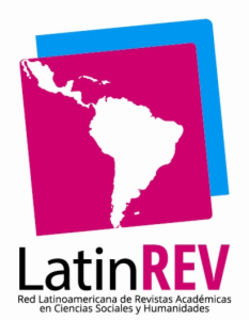Preliminary Analysis of the New Urban Agenda: The Brazil Case Study
DOI:
https://doi.org/10.26512/2236-56562019e40168Palabras clave:
New Urban Agenda, UN-Habitat, International Urban Guidelines, Sustainable Urban Development, Urban PlanningResumen
The following analytical exercise wants to provide the reader with a brief introduction into the New Urban Agenda, an international guideline elaborated by UN-Habitat and agreed by all UN member countries, including Brazil. It should off er a broad overview about the context of the document, how the agenda is structured, what the principal appeals for action are, what the interconnections with other international guidelines are, how the agenda should be implemented on the regional & national level as well as what the UN-Habitat wants to achieve with it. The study will subsequently present exemplary the challenges to institutionalize the New Urban Agenda in general, and specifi cally in the context of Brazilian metropolitan. The information obtained in this text was contextualized for the territory of the metropolitan region of Porto Alegre / RS, focusing on the approach of sustainable urban development based on the relations between the rural and the urban and the challenges faced by the metropolis of Rio Grande do Sul. The research indicates that the institutional arrangements for metropolitan governance in Brazil do not yet have several structural elements for the application of the guidelines proposed by the NAU, thus hampering the advancement of urban development policies in the country.
Descargas
Referencias
ALGEBAILE, E. Reestruturação setorial da política social e composição contemporânea do campo da gestão territorial. In : COLOQUIO INTERNACIONAL DE GEOCRÍTICA, 2008, Barcelona, Espanha. Actas Barcelona: Universidad de Barcelona, 2008.
BRASIL. Decreto-lei nº 311 de 02 de março de 1938. Disponível em: . Acesso em: 12 jan. de 2018.
_______. Estatuto da Cidade. Lei Nº 10. 257 de 10 de julho de 2001. Disponível em:<http://www.planalto.gov.br/ccivil_03/leis/leis_2001/l10257.htm>. Acesso em: 16 jan. de 2018.
_______. Decreto-lei nº 11.326 de 24 de julho de 2006. Disponível em: http://www. planalto.gov.br/ccivil_03/_ato2004-2006/2006/lei/l11326.htm. Acesso em: 23 de jan. 2018.
_______. Estatuto da Metrópole. Lei Nº 13.089 de 12 de janeiro de 2015. Disponivel em: <http://www.planalto.gov.br/ccivil_03/_ato2015-2018/2015/lei/l13089.htm> acesso em: 24 de jan. 2018.
_______. Lei Complementar nº 14, de 8 de Junho de 1973. Disponivel em: acesso em: 13 de abril de 2018.
CLUB OF ROME (2019): Club of Rome - History, 05.04.2019 http://www.clubofrome. org/about-us/history/
COSTA, M. A.; MATTEO, M. ; BALBIM, R. N. Faces da metropolização no Brasil: desafi os contemporâneos na gestão das Regiões Metropolitanas. In: MORAIS, M. P.; COSTA, M. A (Org.). Infraestrutura social e urbana no Brasil: subsídios para uma agenda de pesquisa e formulação de políticas públicas. 1ed.Brasília: IPEA, 2010, v. 2, p. 641-682.
COSTA, Marco Aurélio. O Estatuto da Cidade e a Habitat III: um balanço de quinze anos da política urbana no Brasil e a Nova Agenda Urbana. 1. ed. Brasília: Ipea, 2016. v. 1. 361p
DENNETT, Daniel (2017): From Bacteria to Bach and Back. The Evolution of Minds, New York/London: W. W. Norton & Company, 2017
EUROPEAN COUNCIL OF TOWN PLANNER (2003): The New Charter of Athens 2003, The European Council of Town Planners’ Vision for Cities in the 21st century, Brussels, ECTP-CEU (aisbl), 2003
FERNANDES, E. Estatuto da Cidade, mais de 10 anos depois: razão de descrença, ou razão de otimismo? Revista UFMG, Belo Horizonte, v. 20, n. 1, p. 212-233, jan.-jun./ 2013.
GALINDO, E. P.. CONEXÃO URBANO-RURAL. In: Marco Aurélio Costa. (Org.). O ESTATUTO DA CIDADE E A HABITAT III: um balanço de quinze anos da política urbana no Brasil e a Nova Agenda Urbana. 1ed.Brasília: Ipea, 2016, v. 1, p. 161-180.
GALINDO, E. P. ; MONTEIRO, Roberta Amanajás . O BRASIL E A NOVA AGENDA URBANA ? HABITAT III. Boletim Regional, Urbano e Ambiental (IPEA), v. 15, p. 83-84, 2016.
HABITAT III (2019): Issue papers: the process, 10.06.2019 http://habitat3.org/ documents-and-archive/preparatory-documents/issue-papers/
HARARI, Yuval Noah (2014): Sapiens –A Brief History of Humankind, LondonUK, Harvill Secker, 2014
HOLANDA, Frederico de (2019): O Problema Tipológico – Tópico 4, apresentação no curso Espaço e organização social, Brasília, FAU-Universidade de Brasília, 2019
IPEA, (2016): National Report of Brazil, Brasilia: ConCidades, Instituto de Pesquisa Econômica Aplicada - IPEA, 2016 http://habitat3.org/wp-content/uploads/BrazilNational-Report-Habitat-III.pdf
KOZENIESKI, É. de M.; MEDEIROS, R. M. V. A Manutenção De Espaços Rurais Em Porto Alegre/RS: Uma Análise Preliminar. Geografi a. Ensino & Pesquisa (UFSM), v. 13, p. 33-41, 2009.
LEROI-GOURHAN, André (1990): O gesto e a palavra. I: Técnica e linguagem, Lisboa, Edições 70 – Brasil, 1990
MARGUTI, B. O. ; PINTO, C. V. S.; et al . CONTRIBUIÇÕES À NOVA AGENDA URBANA: O RELATÓRIO DO CONCIDADES PARA A CONFERÊNCIA HABITAT III. Texto para Discussão (IPEA), v. 1, p. 90-07, 2018.
MARTINS, Maria Lucia Refi netti; OLIVEIRA, Paula Custódio; PATITUCCI, Giulia Pereira (2016): O pensamento de Jane Jacobs na perspectiva da cidade includente. Revista Políticas Públicas & Cidades, v.4, n.2, p.72 – 91, 2016 https:// doi.org/10.23900/2359-1552.2016v4n2p67
MARTINS, C. Aplicação do estatuto da metrópole e elaboração do plano de desenvolvimento integrado na região metropolitana de Porto Alegre. In: Brasil metropolitano em foco: desafi os à implementação do Estatuto da Metrópole. (Org.) Marguti, B.; Costa, M.; FAVARÃO, C. Brasília: Editora Ipea, 2018.
MERTZ, M. M. Breve retrospectiva histórica na região metropolitana de Porto Alegre. In: Marinês Z. G.; Lovois de A. M. (org.). Agricultura na Região Metropolitana de Porto Alegre – aspecto históricos e contemporâneos. Led. Porto Alegre: UFRGS, 2002, v. 1, p. 13-41.
RIO, João do (1997): A alma encantadora das ruas, São Paulo, Companhia das Letras, pp. 55, 81., 1997
SACHS, I. Brasil rural: da descoberta à invenção. São Paulo: Estudos Avançados, 2001.
SANTOS, Mônica Veríssimo dos Santos (2018): A comparação entre ODS eNUA, trabalho de monografi a do curso CEFOR, UnB-CEAM
UNITED NATIONS (2015): Envision 2030 - 17 goals to transform the world for persons with disabilities. https://www.un.org/development/desa/disabilities/ envision2030.html
UNITED NATIONS (2017a): New Urban Agenda, Quito, Habitat III Secretariat, http://habitat3.org/wp-content/uploads/NUA-Portuguese-Angola.pdf
UNITED NATIONS (2017b): Regional Action Plan for the implementation of the New Urban Agenda in Latin America and the Caribbean, Santiago, United Nations publication, http://repositorio.cepal.org/bitstream/handle/11362/42146/4/ S1701121_en.pdf
UNITED NATIONS (2017c): Implementing the new Urban agenda by strengthening Urban-rural linkages, Nairobi, United Nations publication.
UN-HABITAT (2016): Implementing branding kit, http://habitat3.org/the-new-urbanagenda/implementing-branding-kit/
UN-HABITAT (2019): History, mandate & role in the UN system, 05.04.2019 https:// unhabitat.org/history-mandate-role-in-the-un-system/
VEIGA, J. E. PARA ENTENDER O DESENVOLVIMENTO SUSTENTÁVEL. 1ª. ed. São Paulo: Editora 34, 2015. v. 1. 231p.
Descargas
Publicado
Número
Sección
Licencia

Esta obra está bajo una licencia internacional Creative Commons Atribución-NoComercial-CompartirIgual 4.0.






